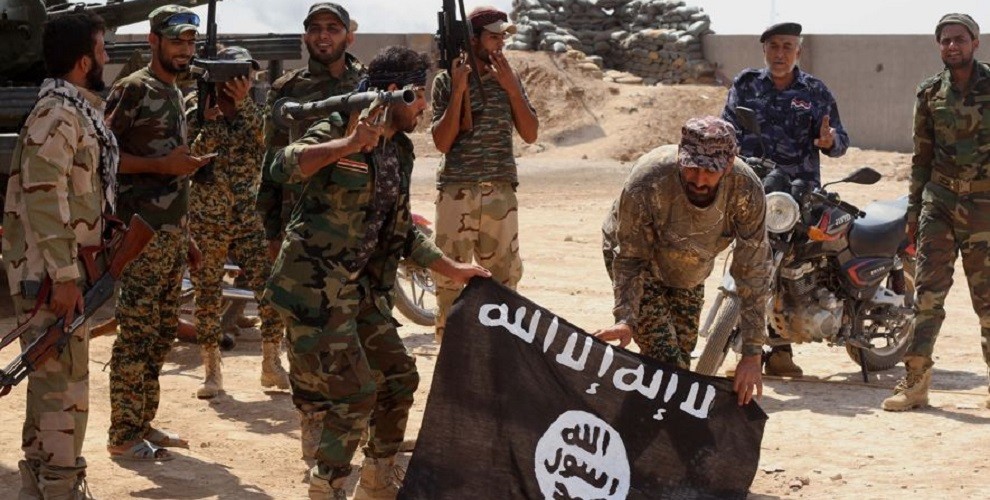Islamischer Staat: Comeback im Irak dank Corona

(Corona Aufklärung des Islamischen Staats)
Nach Abzug vieler ihrer Truppen und Einstellungen aller Kampfhandlungen seitens der US geführen anti-IS Koalition wittern die Jihadisten im Zweistromland Morgenluft und planen ein Comeback.
Seit Wochen nehmen Anschläge wieder zu und es steht zu befürchten, dass dies erst der Anfang einer neuen Offensive ist. Kurdische Quellen befürchten sogar, dass es erneut zur Besetzung ganzer Landstriche im syrisch-irakischen Grenzgebiet kommen könnte. Besonders gefährdet wäre dabei das Sinjar Gebirge, wo der IS 2014 hunderttausende Jesiden zur Flucht zwang, tausende ermordete und über 5000 Mädchen und Frauen in die Sklaverei zwang:
Jabar Yaro, secretary-general of the Ministry of Peshmerga Affairs in the Iraqi Kurdistan government, told the Russian news agency Sputnik on April 1, “The US withdrawal under such circumstances will affect the security conditions and the combat and defense ability of the federal and Kurdistan region forces and will lead IS to grow again in the region.” There have been numerous clashes reported, the most recent being an April 7 attack in which two peshmerga members were killed by IS sniper fire in Kolajo in the Garmiyan region, according to a Rudaw reporter in the area.

(Neue Anschlagserie im Irak, Bild: ANF)
Sinjar Mayor Mahma Khalil said IS is likely to take control of Mount Sinjar and the surrounding area “if the security forces fail to preemptively strike the organization, especially considering that the border between Iraq and Syria is not controlled around there.”
He said, "The security conditions in Sinjar and its outskirts are fragile due to the presence of [armed groups], an uncontrolled spread of arms and the failure of the security forces to play their role in maintaining security. These factors lead IS to exploit the situation and reorganize its ranks.”
The prospects for a strong IS return are linked to its growing ability to smuggle more of its detainees from Iraq and Syria. Despite tightened security measures in Iraqi prisons, some courts are deciding to evacuate inmates accused of terrorism for fear of a coronavirus outbreak in prisons. There are calls for the release of more prisoners, but Iraqi authorities have yet to announce a plan to monitor and track the released individuals.
Ähnliches befürchtet Michael Knights, der in einem Artikel in Politico vor einem schleichenden Wiedererstarken des IS im Irak warnt:
Islamic State’s next steps are easy to guess. It will increase rural assassination raids on local village leaders—so-called mukhtars—and use intimidation to increase its ability to raise funds. Disruption to security force clearance operations will increase IS’ ability to make advanced roadside bombs in its hideouts and use these weapons, and other harassment tactics, to keep the security forces buttoned down in their bases.
If left unchecked, this kind of aggressive patrolling allows insurgents to gain psychological dominance over the local military garrisons and civilian populations. Before long, the insurgents will become the local power brokers, and it will no longer be possible to claim that IS’ days of territorial control are over. This is how the caliphate knits itself back together, one village at a time. This is exactly how it happened in 2012-14, after the previous U.S. withdrawal.